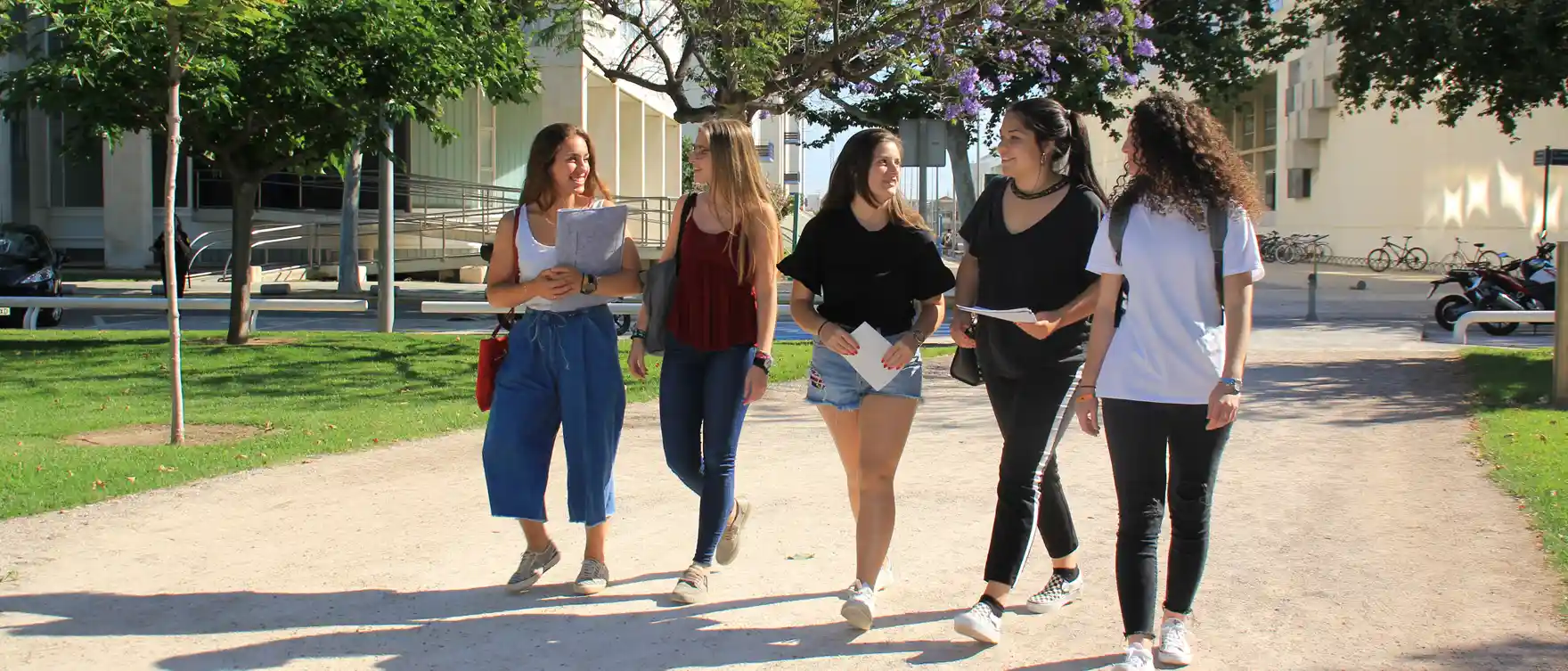Page content
Description of the title
In the new labor market, more and more public entities and technology companies are incorporating talent from the Humanities and Social Sciences in their decision-making positions. In an increasingly complex world, it is necessary to integrate technology with people, weighing social and cultural contexts. Thus, it is not only important to know the how, but also the why and what for.
It is in this context that this Official University Master’s Degree in Digital Humanities is developed, an emerging field in which studies in Humanities and Social Sciences converge with new information technologies. That is our motto: “Digitizing the Humanities to humanize Technology”.
Objectives of the degree

Acquire advanced knowledge for the analysis and dissemination of information in the field of digital humanities.

Apply and integrate techniques and tools for the analysis, processing, preservation, literacy, dissemination and use of humanistic knowledge in the digital environment.

Evaluate and select appropriate methodologies and digital tools for new methods of analysis, processing and use of humanistic knowledge.

To critically analyze the evolution of the multidisciplinary impact that technologies have on social interaction, thus allowing a critical contextual study of the new digital society.

Acquire the ability to transmit and communicate the results of scientific and technological innovation and research in the field of digital humanities to specialized and non-specialized audiences.

Develop autonomy for participation in interdisciplinary projects and work teams.

To assume responsibility in one’s own professional development, with the application of professional ethics, social and ethical responsibility, in accordance with democratic principles and values and the Sustainable Development Goals, in the field of digital humanities, education and cultural dissemination and transmission.
Career opportunities
The program offers a wide range of career opportunities in various fields related to digital heritage and innovative education, such as the following mentioned below:
- Management of digital and/or digitized heritage
- The creation and edition of books and multimedia content, transmedia, models and/or 3D representations of heritage.
- The design of new forms of education and training, with the integration of new narratives and/or educational technologies.
- The representation and interaction with cultural heritage, through digital tools, for the knowledge and enjoyment of citizens of different ages and typologies.
- Digital literacy and educational didactics (in particular related to humanities subjects) in face-to-face, hybrid or non-face-to-face environments.
- The use of content management software and web servers to display data and digital content from any branch of the humanities.
- The dissemination and multimedia and/or interactive communication of any type of information, the success of which requires an understanding of the keys to communication and the application of technology to optimize these processes of social interaction.
- Innovation, information and data management for research groups, especially in the humanities and social sciences and/or transdisciplinary topics.
Aimed primarily at
The Master’s Degree in Digital Humanities is focused on graduates in humanities and social sciences who wish to incorporate methodologies based on technology and digital tools, to achieve the following items:
- Optimize their skills in areas such as educational innovation.
- Description, study, management and dissemination of museum and/or bibliographic heritage.
- Analysis of qualitative and quantitative information in the context of research in humanities and social sciences.
Structure of the master’s degree
Credits: 60 ECTS
Mandatory:45 ECTS |Electives:4,5 ECTS |External internships:0 ECTS |Final Master’s thesis (TFM):10.5 ECTS
Module 1. Mandatory Module :49.5 ECTS mandatory
Subject:Humanities and Innovation
Minimum credits: 19.5 | Character: Mandatory
Subject:Digital Transformation of Heritage
Minimum credits: 12 | Character: Mixed
Note: In this subject, a maximum of 4.5 ECTS can be taken in external curricular internships (the curriculum contemplates a maximum of 4.5 ECTS for external curricular internships).
Subject:Digital Creation and Communication
Minimum credits: 18 | Character: Compulsory
Module 2. Master’s Thesis :10.5 ECTS final thesis
Subject:Master’s Thesis
Minimum credits: 10,5 | Character: Final Degree Project
Semi-attendance teaching
Hybrid teaching mode (40% face-to-face and 60% non-face-to-face).
In the first semester, on Tuesdays and Wednesdays the classes are face-to-face at the School, while on Mondays, Thursdays and Fridays the classes are in synchronous online mode, where students will connect with the teaching staff through the Teams platform to follow the class from wherever they wish.
In the second semester, classes on Tuesdays are in face-to-face mode, while on Mondays and Thursdays the classes are in synchronous online mode. There are no classes on Wednesdays and Fridays.
In the timetable of the degree, all online classes are associated with “ETS DE INGENIERÍA INFORMÁTICA (Edificio 1Z)”.
Internships
There is the possibility of doing an internship. For this, you need, among other requirements:
Requirements
- Be enrolled in the current academic year and during the entire internship period.
- Not already be a graduate, nor meet the conditions to be one, i.e., not have already passed 100% of the credits of the degree.
- Be registered in the curriculum database at the time of formalizing internships (or through the intranet).
- Recommended weekly limit: 20 hours per week during school hours and 40 hours per week during non-instructional periods.
Conditions
Internships must be remunerated: minimum pocket money €4.60/hour.
Master’s Thesis
All information, templates and regulations

